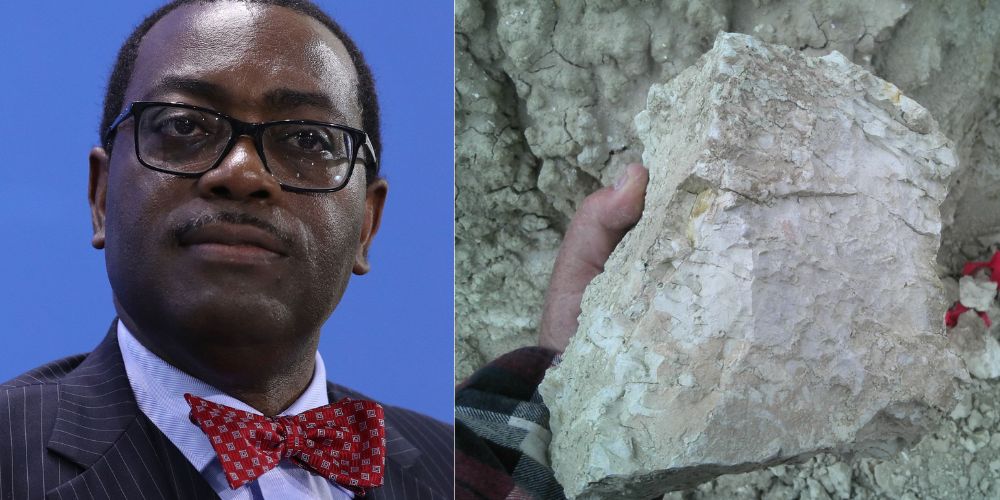‘You’ll Lose Trillions Of Dollars’ – AfDB Warns African Leaders Against Selling Lithium, Platinum, Others Used For Powering Electric Cars
As the global community increases demand for Africa’s lithium, platinum, cobalt and other resources for powering green energy, the African Development Bank has warned leaders in Nigeria and other countries in the continent against making the mistake of selling the resources at give-away prices..
The AfDB wants the continent’s leaders to rather establish plants in their countries, a move that would enable them to become net exporters of lithium batteries and other resulting end products.
Advertisement
The Banks’s president, Akinwunmi Adesina gave the warning on Tuesday at the AfDB annual meeting in Egypt, with the theme: ‘Mobilizing Private Sector Financing for Climate and Green Growth in Africa.’
He said African countries which account for only three per cent of global emissions now suffer the consequence of climate change and the push for energy transition disproportionately.
Adesina said, “As the world moves to the transition to electric cars and vehicles, Africa stands to attract billions of dollars in private investments for greening global transport system. That is because Africa has 80 per cent of the global deposit of platinum, 50 per cent of the global deposit of cobalt, 40 per cent of nickel and substantial deposits of lithium.
“Africa must not make the same mistakes of the past. Africa must set itself up to manufacture lithium-ion batteries and tap into the future market of electric vehicles. By some projections, estimates will run into several trillions of dollars in future.
Advertisement
“I must say here that the cost of establishing a lithium-ion factory in Africa is three times less expensive than in China and three times less expensive than in the United States.”
The AfDB boss decried that the continent is being devastated by climate change, adding that the continent losses $7bn to $15bn yearly and it is expected to rise to $50bn by 2030.
According to him, finding the resources to tackle climate change has become increasingly difficult for African countries.
Adesina lamented that the continent has not fully recovered from the effects Covid-19 pandemic and it is currently faced with rising inflation.
He said Africa’s cumulative climate financing needs are estimated at $2.7trn between 2020 and 2030.
Advertisement
Adesina revealed that climate adaptation costs are estimated between $249bn to $407bn between 2020 and 2030.
The AfDB president stated further that Africa receives only 3 per cent of global climate financing of which 14 per cent is from the private sector, adding that this is among the lowest in the world.
He said, “Before us is full of challenges of climate change no doubt, but it also has and holds massive opportunities for green growth for our economies. Mobilising a lot more private financing for climate change and green growth, governance and development partners should take five approaches.
“First, establish national development plans for green transition for their economies; second subsidise green industries to spur growth and raise demand, profitability and sustainability.
“Third, multilateral and bilateral institutions should provide guarantee at scale to help de-risk investments by the private sector.
“Fourth, support should be provided for the reparation and development of bankable projects that can provide high-risk-adjusted returns to the private sector. And sixth, existing public infrastructure should be transferred to the private sector.”



